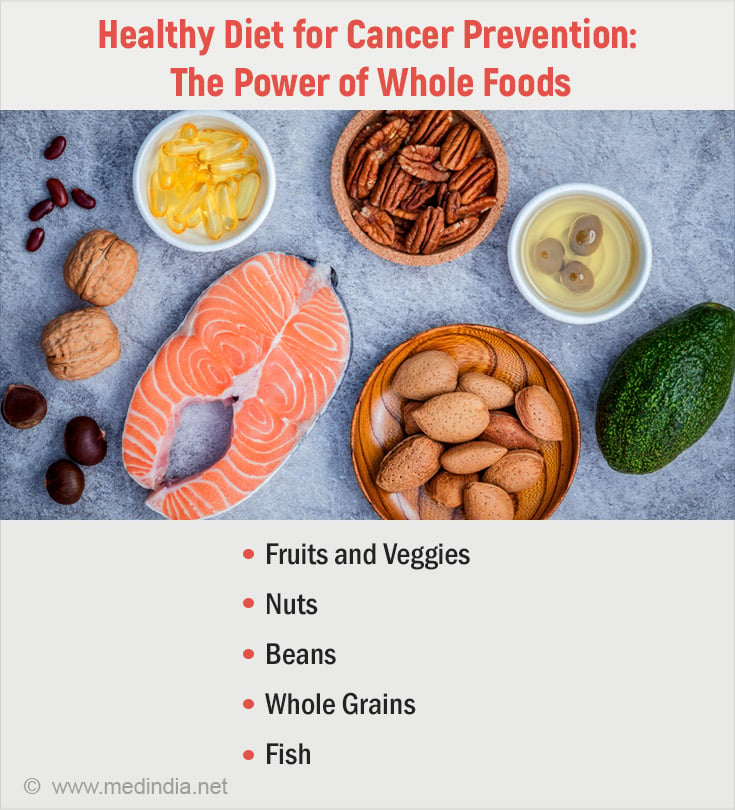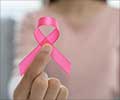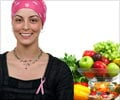- The Development and Causes of Cancer - (https://www.ncbi.nlm.nih.gov/books/NBK9963/)
- Diet, nutrition, and cancer risk: what do we know and what is the way forward? - (https://pubmed.ncbi.nlm.nih.gov/32139373/)
- A Review of the In Vivo Evidence Investigating the Role of Nitrite Exposure from Processed Meat Consumption in the Development of Colorectal Cancer - (https://pubmed.ncbi.nlm.nih.gov/31694233/)
- Polycyclic Aromatic Hydrocarbons Detected in Processed Meats Cause Genetic Changes in Colorectal Cancers - (https://pubmed.ncbi.nlm.nih.gov/34681617/)
- Processed meat and colorectal cancer: a review of epidemiologic and experimental evidence - (https://pubmed.ncbi.nlm.nih.gov/18444144/)
- Meat Intake, Cooking Methods, Doneness Preferences and Risk of Gastric Adenocarcinoma in the MCC-Spain Study - (https://www.ncbi.nlm.nih.gov/pmc/articles/PMC9695943/)
- Red meat intake and risk of breast cancer among premenopausal women - (https://pubmed.ncbi.nlm.nih.gov/17101944/)
- Acrylamide in starchy foods subjected to deep-frying, 20 years after its discovery (2002-2022): a patent review - (https://www.ncbi.nlm.nih.gov/pmc/articles/PMC10904932/)
- Acrylamide carcinogenicity - (https://pubmed.ncbi.nlm.nih.gov/18624430/)
- Dietary Acrylamide Exposure and Cancer Risk: A Systematic Approach to Human Epidemiological Studies - (https://www.ncbi.nlm.nih.gov/pmc/articles/PMC9858116/)
- Acrylamide Decreases Cell Viability, and Provides Oxidative Stress, DNA Damage, and 12. Apoptosis in Human Colon Adenocarcinoma Cell Line Caco-2 - (https://pubmed.ncbi.nlm.nih.gov/31963203/)
- Meat consumption, cooking practices, meat mutagens, and risk of prostate cancer - (https://pubmed.ncbi.nlm.nih.gov/21526454/)
- Does milk intake promote prostate cancer initiation or progression via effects on insulin-like growth factors (IGFs)? A systematic review and meta-analysis - (https://pubmed.ncbi.nlm.nih.gov/28361446/)
- Type 2 diabetes mellitus, oxidative stress and inflammation: examining the links - (https://pubmed.ncbi.nlm.nih.gov/31333808/)
- Diabetes mellitus and endometrial carcinoma: Risk factors and etiological links - (https://www.ncbi.nlm.nih.gov/pmc/articles/PMC9410665/)
- Multiple DNA repair pathways prevent acetaldehyde-induced mutagenesis in yeast - (https://www.researchgate.net/publication/377260172_Multiple_DNA_repair_pathways_prevent_acetaldehyde-induced_mutagenesis_in_yeast)
- Moderate alcohol consumption and estrogen levels in postmenopausal women: a review - (https://pubmed.ncbi.nlm.nih.gov/9726268/)
About
Cancer is a difficult disease. In 2022, there were about 20 million new cancer cases and 9.7 million cancer-related deaths globally. Cancers can come in a variety of forms, with numerous possible causes. Although we don't have all the answers, we do know that a number of variables can contribute to the development of cancer.
Genetics and family history are important factors. However, extrinsic factors that you may have some control over, such as your diet and lifestyle, have an even greater impact. External factors cause 80-90% of malignant tumors(1✔ ✔Trusted Source
The Development and Causes of Cancer
Go to source).
Diet is one of the most significant lifestyle aspects to consider. That's because a huge body of research has found that some diets increase the risk of certain types of cancer. For example, high meat consumption has been linked with higher rates of colorectal cancer(2✔ ✔Trusted Source
Diet, nutrition, and cancer risk: what do we know and what is the way forward?
Go to source).
Did You Know?
Eating just 50 grams of processed meat a day (about 4 slices of bacon) can increase your risk of colorectal cancer by 18%! #foodsforcancer #cancercausingfoods #medindia
Cancer-Causing Foods That You Should Avoid
Some foods can increase your chance of developing type 2 diabetes and obesity, both of which have been linked to certain types of cancer. Other foods contain carcinogens, which are toxic compounds with the potential to cause cancer.
However, it is important to note that exposure to carcinogens does not always result in cancer. It is determined by your genetics, as well as the amount and duration of exposure to the carcinogen.
With this in mind, let's look at what research has shown regarding which foods may increase your risk of various types of cancer. Here are the top six cancer causing foods to avoid:
Processed Meats
Processed meat is any meat that has been preserved through smoking, salting, curing, or canning. The majority of processed meats are red- hot dogs, salami, sausage, ham, corned beef and beef jerky.
The procedures used to process meats can produce carcinogens. For example, curing meat with nitrite can produce carcinogens known as N-nitroso compounds(3✔ ✔Trusted Source
A Review of the In Vivo Evidence Investigating the Role of Nitrite Exposure from Processed Meat Consumption in the Development of Colorectal Cancer
Go to source). Smoking meat can potentially produce carcinogenic polycyclic aromatic hydrocarbons (PAHs)(4✔ ✔Trusted Source
Polycyclic Aromatic Hydrocarbons Detected in Processed Meats Cause Genetic Changes in Colorectal Cancers
Go to source).
Processed meat is a significant risk factor for colorectal cancer(5✔ ✔Trusted Source
Processed meat and colorectal cancer: a review of epidemiologic and experimental evidence
Go to source) and stomach cancer(6✔ ✔Trusted Source
Meat Intake, Cooking Methods, Doneness Preferences and Risk of Gastric Adenocarcinoma in the MCC-Spain Study
Go to source). Researchers also discovered that consuming a lot of processed meat raised the risk of breast cancer(7✔ ✔Trusted Source
Red meat intake and risk of breast cancer among premenopausal women
Go to source).
Fried Foods
When starchy foods are cooked at high temperatures, a chemical called acrylamide is produced. This can occur during frying, baking, roasting, or toasting. Fried starchy meals are particularly high in acrylamide(8✔ ✔Trusted Source
Acrylamide in starchy foods subjected to deep-frying, 20 years after its discovery (2002-2022): a patent review
Go to source). This includes fried potato items such as French fries and potato chips.
Acrylamide has been shown to be carcinogenic in rat experiments(9✔ ✔Trusted Source
Acrylamide carcinogenicity
Go to source). Researchers believe it is "probably carcinogenic to humans" too(10✔ ✔Trusted Source
Dietary Acrylamide Exposure and Cancer Risk: A Systematic Approach to Human Epidemiological Studies
Go to source). According to a 2020 study, acrylamide destroys DNA and causes apoptosis, or cell death(11✔ ✔Trusted Source
Acrylamide Decreases Cell Viability, and Provides Oxidative Stress, DNA Damage, and 12. Apoptosis in Human Colon Adenocarcinoma Cell Line Caco-2
Go to source).
Eating a lot of fried food raises your risk of type 2 diabetes and obesity. These disorders can cause oxidative stress and inflammation, raising your cancer risk.
Overcooked Meals
Overcooking foods, particularly meats, can result in carcinogens. Grilling beef at high temperatures produces carcinogenic PAHs and heterocyclic amines (HCAs). This may increase the risk of cancer by modifying your cells' DNA(12✔ ✔Trusted Source
Meat consumption, cooking practices, meat mutagens, and risk of prostate cancer
Go to source).
Cooking at high heat or over an open flame increases the likelihood of overcooking foods. This includes cooking techniques such as grilling, barbecue, and pan frying. Overcooking starchy foods such as potatoes increases acrylamide formation.
To lower the risk of carcinogens from high-heat cooking, adopt healthy cooking methods like poaching and pressure cooking, baking or roasting at lower temperatures, or slow cooking using a crock pot or slow cooker.
Dairy
There is some evidence that dairy consumption may increase the risk of prostate cancer. Dairy foods include items like milk, cheese, and yogurt.
According to a 2020 study, dairy consumption raises levels of insulin-like growth factor 1 (IGF-1). This is related to an increased risk of prostate cancer(13✔ ✔Trusted Source
Does milk intake promote prostate cancer initiation or progression via effects on insulin-like growth factors (IGFs)? A systematic review and meta-analysis
Go to source). IGF-1 may promote the growth or creation of prostate cancer cells.
Sugar and Refined Carbohydrates
Sugary meals and processed carbohydrates can indirectly raise your risk of cancer. Some examples of these foods are sugar-sweetened beverages, baked goodies, white pasta, bread, grains, and sugary cereals.
Consuming a high proportion of sugary and starchy meals may raise your chances of getting type 2 diabetes and obesity. These situations increase inflammation and oxidative damage(14✔ ✔Trusted Source
Type 2 diabetes mellitus, oxidative stress and inflammation: examining the links
Go to source). This may increase your risk of developing some cancers. Type 2 diabetes raises the risk of ovarian, breast, and endometrial (uterine) cancer(15✔ ✔Trusted Source
Diabetes mellitus and endometrial carcinoma: Risk factors and etiological links
Go to source). A high sugar and refined carbohydrate intake may also result in elevated blood glucose levels, which could be a risk factor for colon cancer.
To reduce the health impacts of refined carbs, try replacing them with better options such as whole grains include bread, pasta, brown rice, and oatmeal.
Alcohol
When you ingest alcohol, your liver converts it into acetaldehyde, a carcinogenic chemical. Acetaldehyde causes DNA damage and oxidative stress(16✔ ✔Trusted Source
Multiple DNA repair pathways prevent acetaldehyde-induced mutagenesis in yeast
Go to source). It also impairs immunological function, making it difficult for your body to identify precancerous and cancerous cells.
Alcohol raises estrogen levels in women's bodies(17✔ ✔Trusted Source
Moderate alcohol consumption and estrogen levels in postmenopausal women: a review
Go to source). This is associated with an increased risk of estrogen receptor-positive breast cancer.

Healthy Diet for Cancer Prevention
Several foods contain beneficial ingredients that may help lower the risk of cancer. This comprises dishes such as:
- Fruits and veggies: Fruits and vegetables are high in antioxidants. These substances can help your cells resist oxidative stress and DNA damage.
- Nuts: Nuts may help lower inflammation and cancer risk.
- Beans: Beans are high in fiber. This may help to lower the incidence of colorectal cancer.
- Whole grains: Whole grains are linked to a decreased risk of cancer. Whole grains, including quinoa and brown rice, are high in fiber and antioxidants.
- Fish: Fish contains healthful lipids called omega-3 fatty acids. Fish omega-3 fats may reduce the incidence of some cancers by lowering inflammation.
Some of the worst foods for cancer are processed meat, overcooked foods, and fried foods. They may raise your risk of certain types of cancer. That is because certain meals may contain carcinogens, or cancer-causing substances. When your body metabolizes alcohol, it produces carcinogens. Dairy, sugar, and processed carbohydrates may also increase the risk of certain types of cancer.
To lower your risk of cancer, aim to restrict your intake of these foods and prioritize good lifestyle practices. This includes eating more foods that may lower your cancer risk, getting regular exercise, and learning how to manage your stress.









